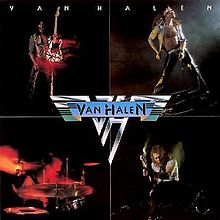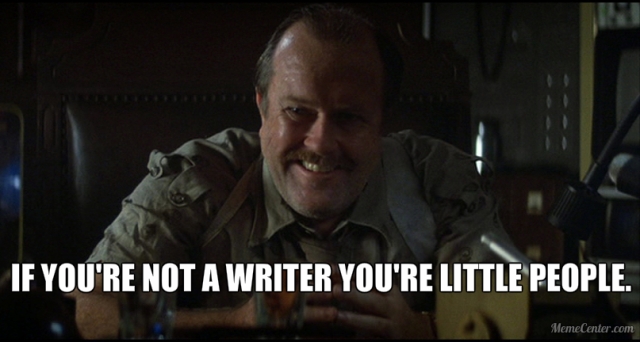Hello, whoever you are. Please forgive my handwriting, I grew up using a keyboard, but with the power gone my laptop died last Tuesday. Too dangerous to scope out houses with solar panels to recharge. I found that one out the hard way yesterday, and it’s clear now that my lone expedition outside will cost me my life.
I don’t know how these things follow you, but they do.
I write most of this from memory. If you’re reading this, my laptop is in the plastic storage box with all the duct tape around it. My password is: fleshp!ckle214. I labeled the files so you know which one is my full lockdown diary, and which one has all the pics I took when I could still go outside. There are a dozen quality pictures of them. I realize that if anyone is reading this that you already know what they look like, but just in case, I documented them for you. Just in case you, whoever you are, happen to be reading this far in the future I printed two of the best ones out, and they’re in the back of this binder.
I’ll take you back to May 2020. A week before the Governor announced the lockdown, or social-distancing, or shelter-in-place order depending on which county you lived in. I got off work at my usual time, 11:00 P.M. from working front desk at the Redwood Creek Lodge. I stopped for gas a few blocks away, and that’s when I saw the flash in the sky. I see a lot of meteors thanks to my late hours, and they usually are a green flare streaking across the sky. This was different. It was golden yellow with a trail of sparks behind it, and it spiraled into the Santa Cruz Mountains lighting up the south side of Loma Prieta before it vanished into the trees.
It was weird enough that I called 911 to report a possible plane crash just to be safe.
And that was it. I drove home, and a few days later the Governor tells me I’m out of a job for the foreseeable future.
The state wouldn’t close the parks down for another week, so with my sudden abundance of free time I drove up the road to Nisene Marks, in Aptos. A park ranger was emptying a trash can, and I asked her if there had been a plane crash the week before.
She looked at me funny and said, “This is the fourth time this week someone has asked me this. No, there was no plane crash.”
I asked her who else was enquiring.
“Some old lady, some junior high school kid on a mountain bike, and earlier today a van load of yuppy rednecks.”
I thanked her for her time and drove all the way up to the main parking lot at the base of the mountain. There were a few cars, six including mine, and the van. Its side door was open, and a man dressed in nice hiking clothes sat inside talking on a satellite phone. I could tell it was from the size, and the long black antenna. He wore expensive Oakley sunglasses, and he looked like a guy you’d find in a NAASCAR pit crew. You know, groomed mustache, and thin, but you knew he could take care of himself in a dark alley.
Grabbing my backpack from the trunk, I put my compass in the pocket of my black jeans, and took off up the trail. My plan was to cross Aptos Creek and bushwhack my way up the south side of the mountain. The great thing about redwood forests is that once you get some elevation, the ground clears of the ferns and shrubbery which you find along the creek side. Fifteen minutes later I passed the 1989 Earthquake marker, and crossed the creek. The cool thing about this trail is that it was cut into the hillside by the lumber mill that once owned the land for a narrow gage railroad. Just like walking through a hallway until it opens up into a breathtaking bowl-shaped draw which snakes up out of view.
Thing is, this time there were two NAASCAR looking guys waiting on the trail on the other side of the portal. They had military rifles with all the expensive sights, and lasers, and hand-grips. Guns aren’t allowed in the park.
I didn’t have the stones to mention that to them.
They stopped me, and the shorter guy without a mustache said, “Sorry, son, the trail is closed today.”
I asked him if it had to do with the crash. They looked at each other for a second.
He turned back to me and said, “What crash?”
I told him what I’d seen the other night.
“Okay, what you saw was an experimental plane that collided with its chase plane. It’s what they call ‘Exotic’, with all kinds of high-tech bells and whistles. And that’s why we can’t let folks up there.”
I was in no position to argue with two armed men. I spun around intending to go back to my car, satisfied that I had solved my little mystery. Gunfire from somewhere up on the mountain made me stop. The two men shouted into their radios and ran off up the trail. I followed them a short time until the volume of shooting made me chicken out and run out of there. On my way back to my car I passed the man from the van going the opposite direction. He had a rifle too. I drove out of the park and went home.
I never saw anything on the local news about a shootout, or reports of gunfire.
The next four weeks are detailed on my laptop, but crib note version is that I blew off the incident at Loma Prieta as Feds running into pot farmers. With direct deposit, I didn’t have to leave the house except to go to Walmart for groceries. I spent most of my time playing X-Box and watching Netflix. Since you’re reading this, you already know I live in a converted garage behind my landlord’s place. That fence outside means I can’t see the street. I wear headphones when I play, so during that time I was in my own world.
I didn’t notice anything strange during my trips to the store, deserted streets were expected. There were a few cars here and there, but I figured everyone was taking the stay- at- home order seriously. And then fewer people were logging onto X-Box Live. In the span of ten days, the number of games I could join online dropped from three-hundred to zero. I started my own game and left it open for a few days. Four days later my phone alerted me that there was a player logged on.
I jumped online, and we played for a while. We talked shit like all gamers do, but as the game went on the other player, a girl from Seattle named Ava, mentioned that none of her friends were answering their phones and texts. I told her I lived alone, but the last time I was at Walmart the crowds were gone, and counting the employees I saw nine people. We managed to freak each other out and we logged off at the same time. This still bugs me five months later. She was the last human contact I had.
A few days later the Walmart was closed, and mine was the lone car in the parking lot. I went to the Safeway but that was closed too. The gas station on the way home was still open, allowing me to raid the mini-mart after I gassed up.
The Arab guy behind the counter looked spooked, and said, “You are the first person I’ve seen in two days.”
I told him about everything being closed and asked him if he’d heard anything.
“I don’t watch the news, but last week a bunch of army helicopters flew over heading north.”
I got in my car and began the drive home. On the overpass my car shook, and a pair of giant, gray air force cargo planes passed overhead low enough that I could see the rivets and panels of the airframes, and smell the jet fuel exhaust. At this moment I remembered my car radio and turned it on, setting it to scan. Most of the smaller Spanish language stations were silent, but I stopped when the dial hit KGO out of San Francisco since they’re news-talk. I caught the tail end of a recorded message, and then the Emergency Alert Network alarm squawked on my speakers. The message repeated.
“An invasion of a species believed to be of extraterrestrial origin is underway worldwide. The creatures are spider like, approximately the size of a large dog, and have a thirty-foot vertical leap, and can climb vertical surfaces at will. They have been reported as moving easily on ceilings.”
My mouth went dry, but I held onto the steering wheel too tight to reach for my Mountain Dew.
The message continued, “The invaders hijack human bodies by laying eggs inside their abdomens. The larva makes their human hosts compliant to suggestion until the eggs hatch, and the hosts are eaten from the inside out. The incubation period is only a few hours. As a result, every large city in the world has been colonized. The President of the United States, France, and Russia have all been airborne continuously since this crisis began. If you are currently living in a large city you are ordered to evacuate. Do not stop for anyone, even friends or family that you have not been in direct contact with during the COVID-19 shelter in place conditions as they may be compromised by the invaders.”
I felt dizzy but didn’t dare roll down the window.
“Three days from now every major city and metropolitan area will be destroyed with nuclear weapons. Surviving armed forces have retreated to secure locations, and once the action is complete, they will hunt the surviving creatures down and destroy them.”
The radio alarm sounded again, and a new message followed.
“Residents of San Francisco, Oakland, Richmond, Santa Clara, and San Jose are ordered to evacuate. They will be destroyed by nuclear strikes three days from now. This is not a drill.”
When I got home I smoked a bowl to conserve my beer.
I knocked on the back door of my landlord’s house, but there was no answer. She kept the key under a pig iron frog next to the door, and I let myself in. Judging from the stink from the rotting food in the refrigerator, they hadn’t been home in weeks. A postcard tacked to the bulletin board reminded me that she and her husband had a cabin up at Lake Shasta. I hoped they were okay. I was about to go back to my apartment when I saw something move in the street through the picture window of the living room.
A man and a woman staggered down the middle of the street. They moved in spurts, shuffling a few steps before switching to a lurch. Their movements were jerky. Their heads turned sharply to the left and right. I wondered how they didn’t snap their necks. They continued down the street, and I could see their jeans were stained from where they’d shit themselves. Once they were further away, I saw they were being escorted by the space spider things.
They had stubby legs, big black eyes, and a hard shell skin colored black with red stripes which looked like lightning bolts. I didn’t move for an hour until I was sure they were gone. I found my landlord’s stash, and locked my apartment door, and closed the curtains, and smoked another bowl.
The next morning I found my laptop had died and the power was out. I snuck out to my car to listen to the radio for news, but the message was the same. I knew there were a couple of houses with solar panels down the street. I put my laptop in my backpack and headed out. I stayed off the street by climbing fences. The houses were all empty, but I didn’t stop until I got to the first one with the panels.
Their back patio door was unlocked. I didn’t hear anyone. I flipped the switch for the kitchen lights and they came on. I put my pack on the counter and was about to get my computer out when I heard something in the garage. I put my pack back on, intending to get the hell out of there, but I really need my laptop. I crept to the door, turned the knob nice and slow. I opened it eyeball-wide.
A woman was pinned to the ground next to her Subaru by one of the space spiders. I thought it was stinging her but then realized it was pumping eggs into her just below her kidneys. Her eyes were wide and her mouth gaped in a silent, God awful scream. The creature pinned her arms and legs to the concrete. Her head rolled in my direction and she saw me.
She smiled and pointed at me.
The words she screamed were not human, and the space spider shifted its body in my direction. I closed the door, locking it behind me, and I ran out the back. I cleared those fences like I was in the Olympics and locked my door. I moved my dresser to barricade it and spent the rest of the day hiding in the closet drinking the beer I’d bought from the Arab guy the day before since it was going to get warm, anyway.
About four the next morning I woke to hear something on the roof, and something else moving around outside. I don’t know how I kept from screaming. The thing’s feet tapped as they walked like a dog on the sidewalk. I heard rhythmic hissing as they talked to each other. They circled the house for an hour and moved on.
In the past two days their patrols have returned each night.
The radio message changed yesterday. Every town has either been colonized or cut off. They said that travel to a safe zone is now impossible. Residents attempting to flee are being stopped as the creatures swarm their cars. The bombs drop tomorrow at noon.
I changed the station just to see if I could find anything, and I found a station out of UC Santa Cruz. The lady on the radio sounded even more stoned than I was. She said COVID-19 was extraterrestrial in origin, and that the virus acted like a meat tenderizer for the space spiders. All of those people who had the virus but showed no symptoms had a scent the invaders could sniff out. That’s why they haven’t found me, I don’t smell like lunch.
So, whoever you are, this is my plan.
The drive to San Jose is a half hour. I will go there and wait for the nukes. Better to die fast and stoned than being a meal for space spiders. I’m no hero. I’m just a guy who wanted to manage a Best Western someday. I got a full tank of gas, and I don’t have to worry about the cops, or insurance. I’ve seen them, I can run them over like Texas armadillos. The only thing I worry about is the missiles being late. If you’re reading this, then you know how my story ended. My license plate number is on my insurance card on the back of my driver’s license in my wallet. Maybe you can put a story to the molten wreck you find.
If anything survived.


